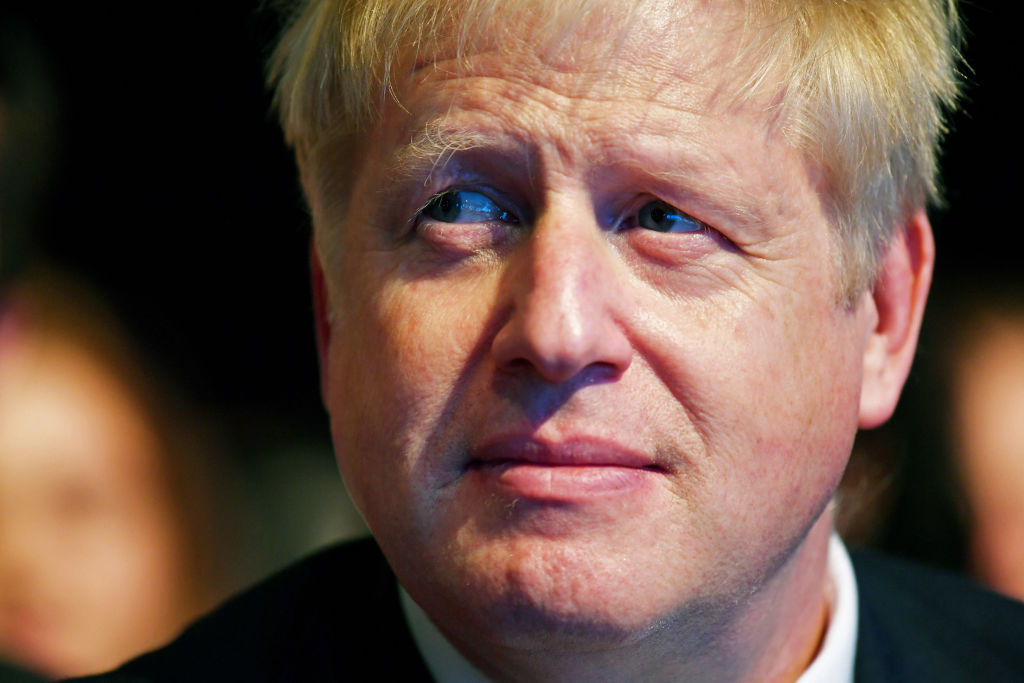Reflecting on Boris Johnson’s Brexit deal, I have many questions.
Why are people who rejected the possibility of Northern Ireland being subject to EU rules and regulation via a contingent backstop now embracing the certainty of that happening?
How could anyone reasonably expect the DUP to sign up to something that really does make Northern Ireland a very, very different part of the Union? Something they were repeatedly promised would never be conceded.
Why are none of the people who used to be furious about the ‘£39 billion’ (actually less now but never mind) objecting to paying it now?
Why shouldn’t MPs have at least a superficial analysis of the economic trade-offs made in this deal? In short, the deal means we’re prepared to definitely do less trade with our biggest trading partner in exchange for the possibility of doing more with partners with whom we have less trade such as the US. That’s a legitimate cost for a country to make, but our representatives should be able to debate the numbers involved before they sign up to it on our behalf.
Why, when it comes to the negotiation of a future trade deal, would the EU budge on the level playing field when they now know that even a Tory government isn’t prepared to die in a ditch over ‘Singapore-on-Sea’? Expect future British politics to be all about that deal, the trade-offs such a deal – and others – will entail. The successors to Jeremy Corbyn and Nigel Farage will have a fine time whipping up popular unease about trade deals in years to come.
None of these questions, incidentally, mean that I think MPs should vote against the deal tomorrow. Having repeatedly argued for compromise, and for Theresa May’s deal, it would be absurd of me to argue against the Johnson deal because it’s not quite as good as the May deal. Brexit, like politics, is about least-bad options. And taking this deal is – marginally – less bad than all the other choices.
But my biggest question about the deal is why it happened. Why did Johnson, in a few short weeks, abandon several red lines and go hell-for-leather for a deal?
In one sense, this is academic: it doesn’t really matter, especially not to voters. What matters is outcomes, not their origins. The voters who will give Johnson a poll boost and, quite likely, an election success, won’t care why he cut this deal.
But I care, if only because it’s important that we know — and write — the truth about politicians and what they do. And I worry that’s not happening over this deal.
My view is still that this was about the Benn Act. I believe — on the basis of several conversations with participants — that the key event of this drama was the moment in the last month when the PM accepted that there was, in fact, no clever legal way to avoid requesting an extension to EU membership that would cause him to break his ‘out by 31 October’ promise.
And having accepted that, his only way to keep that promise was to get a deal — any deal, even one that puts a regulatory border in the Irish Sea, accepting some ECJ jurisdiction and paying £30-odd billion. Bluntly, I don’t think Boris Johnson did this deal because it’s what he always wanted, or that he always intended to end up here. I think he did it because he concluded he didn’t have a better alternative.
I know this explanation is contested, not least by ‘Downing Street sources’, now seeking to tell a story of how this was always the plan, all along.
But for that to be true, many more questions must be answered. If you always wanted a deal, why bother challenging Benn? And why all those threats to either ignore or nullify it? Likewise, anyone trying to tell a story of a grand strategy starting in July and ending with the October deal needs to explain how prorogation and the failed general election bid were intended to produce this outcome.
Meanwhile, the very fact of this deal challenges the Downing Street narrative. Remember when we were told that the Surrender Act removed any chance that the EU would do a deal, that it fatally undermined the British negotiating position? If that was true, how do you explain the fact that the EU did in fact move, especially on Northern Irish consent?
Explaining politics through stories of genius and heroism is always tempting. It certainly makes better copy than a tale of improvisation and blunder. Whose pulse races at a story of a Prime Minister who, faced with limited options, chose the one he – or she – found least unattractive?
Why did Boris Johnson strike this deal? It’s not because he’s the bold and thrusting courageous British visionary that critics always said Theresa May could never be. It’s because, like her, he accepted the reality of his position, and of Britain’s, and made the best of it.
If the deal passes the Commons a lot of people will want to tell a story of a heroic leader, a man of destiny who bent the world to his will and refused to compromise. The reality is just the opposite: Boris Johnson did a deal because he had to. If he wins it is not because he didn’t yield. It is because he compromised.
And that is not just more to his credit than the myth-making about heroism and grand plans, it’s also something more important: the truth.







Comments